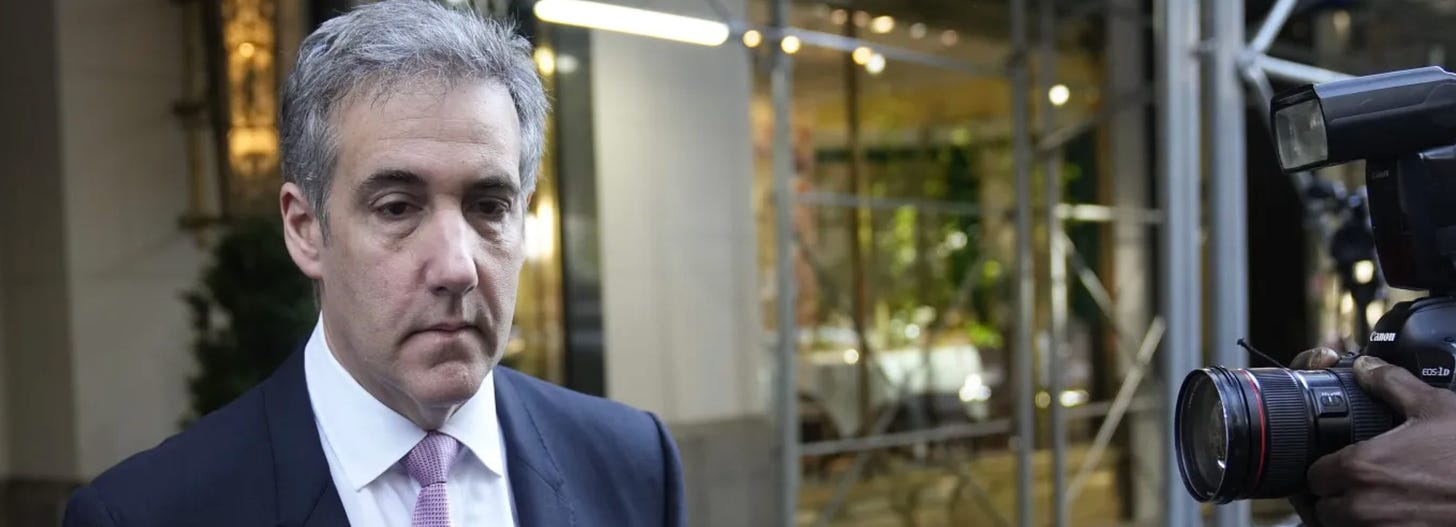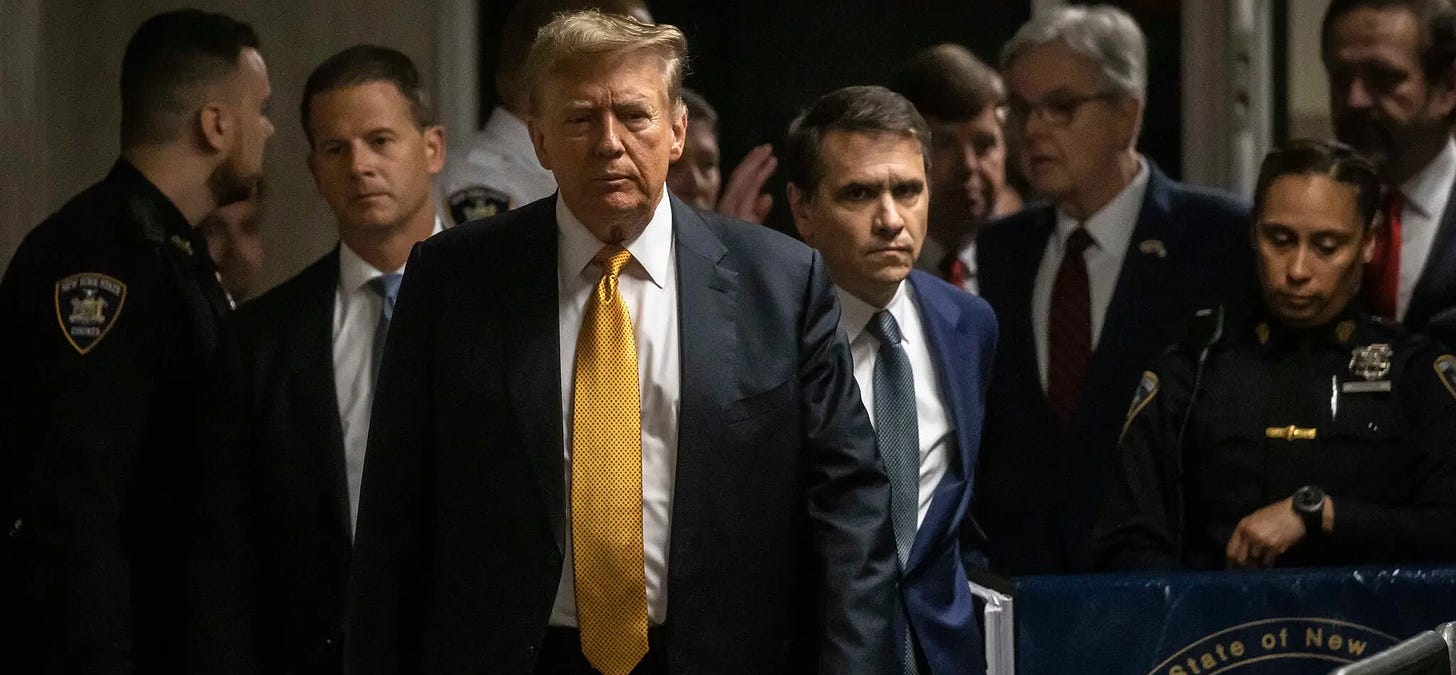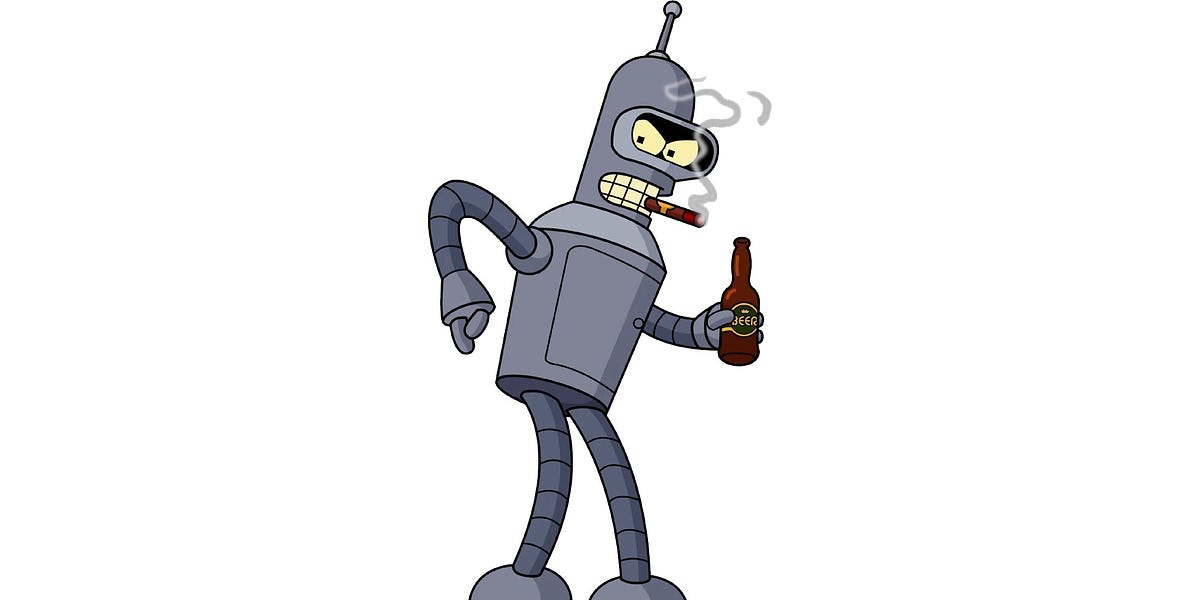
Yesterday’s Trump Trial fireworks included this remarkable Fortune headline: “
Michael Cohen says he stole tens of thousands of dollars from Trump's company.” So — by his own admission — the disbarred lawyer is a chronic dissimulator
and a thief.

As though he were kneeling in a confessional, President Trump’s former attorney Michael Cohen admitted yesterday that he stole tens of thousands of dollars from Trump’s company, because — laughably — he thought he was
underpaid.
While being pressed by defense attorney Todd Blanche, Cohen admitted that he pocketed cash that was supposed to be reimbursement for a $50,000 payment Cohen claimed he had shelled out to a technology firm. But Cohen actually gave the technology firm just $20,000, he said.
“So you stole from the Trump Organization,” Blanche asked.
“Yes, sir,” Cohen replied. Cohen agreed he never paid the Trump Organization back.
Ha. That’s just the time they
know about. Who knows how much thievery Cohen got up to? What
else did Cohen steal, apart from Trump’s good reputation?
It’s a bad look for a star witness. Media missed the immeasurable irony of convicting a President for putting the wrong words on his check stubs through the testimony of an admitted thief who
isn’t being prosecuted.
Bragg’s lawyers will spin it like this:
Cohen told the truth about lying and stealing, so he must have told the truth about the other stuff, too. But anyone who’s been a parent knows that when kids get caught with their little hands in the cookie box, they often cough up
part of the truth, and they often hang onto the big lie to a ridiculous point.
Although corporate media quickly got its act together, in the moment yesterday while Cohen was admitting to
a crime in open court, all the attorney analysts from the various networks expressed shock, disbelief, and doubt that Bragg could ever overcome reasonable doubt. For now, I’ll just put it this way: if the jury convicts him, Trump’s lawyers will have a
lot to work with on appeal.
There are signs that corporate media is starting to craft a standby narrative, a cover story that losing the case was all
Michael Cohen’s fault. Yesterday, NPR ran a revealing story with the slightly misleading headline, “
How does Trump's trial end? It may hinge on how jurors feel about sex and privacy. Even NPR thinks it’s not looking too good for persecuting a president.
According to NPR’s legal experts, Bragg has a big
timeline problem.
Prosecutors have to show intent to defraud when it comes to the business records. But if prosecutors allege that Trump was trying to defraud the voters, they could run into a timeline problem, because none of these allegedly false entries were made until 2017. That's well after the 2016 election.
"You can't defraud voters with documents when those voters are voting in November 2016 if those documents don't exist yet," Shugerman said, adding that he feels the target of the alleged fraud hasn't been made clear by the prosecution.
"Under the statute, intent to defraud needs a target. They've never applied it to the general public or anything as broad as the electorate,” he added.
You would think they’d want an airtight case while making presidential prosecution history. But Trump derangement is not constrained by such silly qualms.
Today we’ll discover how much defense case Trump’s lawyers intend to put on. But it doesn’t sound like the parties expect much, since Judge Merchan, masterfully dragging out the case, announced yesterday that no matter what, closing arguments would be delayed until after the upcoming holiday weekend. That gives jurors an extended chance to marinate in all the unavoidable media about the case, unless they all keep their phones turned off for a week.
The Trump trial devolution continues apace; war crimes charges complicate Biden's political calculus; great news for Julian Assange; a dramatic legal conflict exposes AI ethics questions; and more.

www.coffeeandcovid.com






